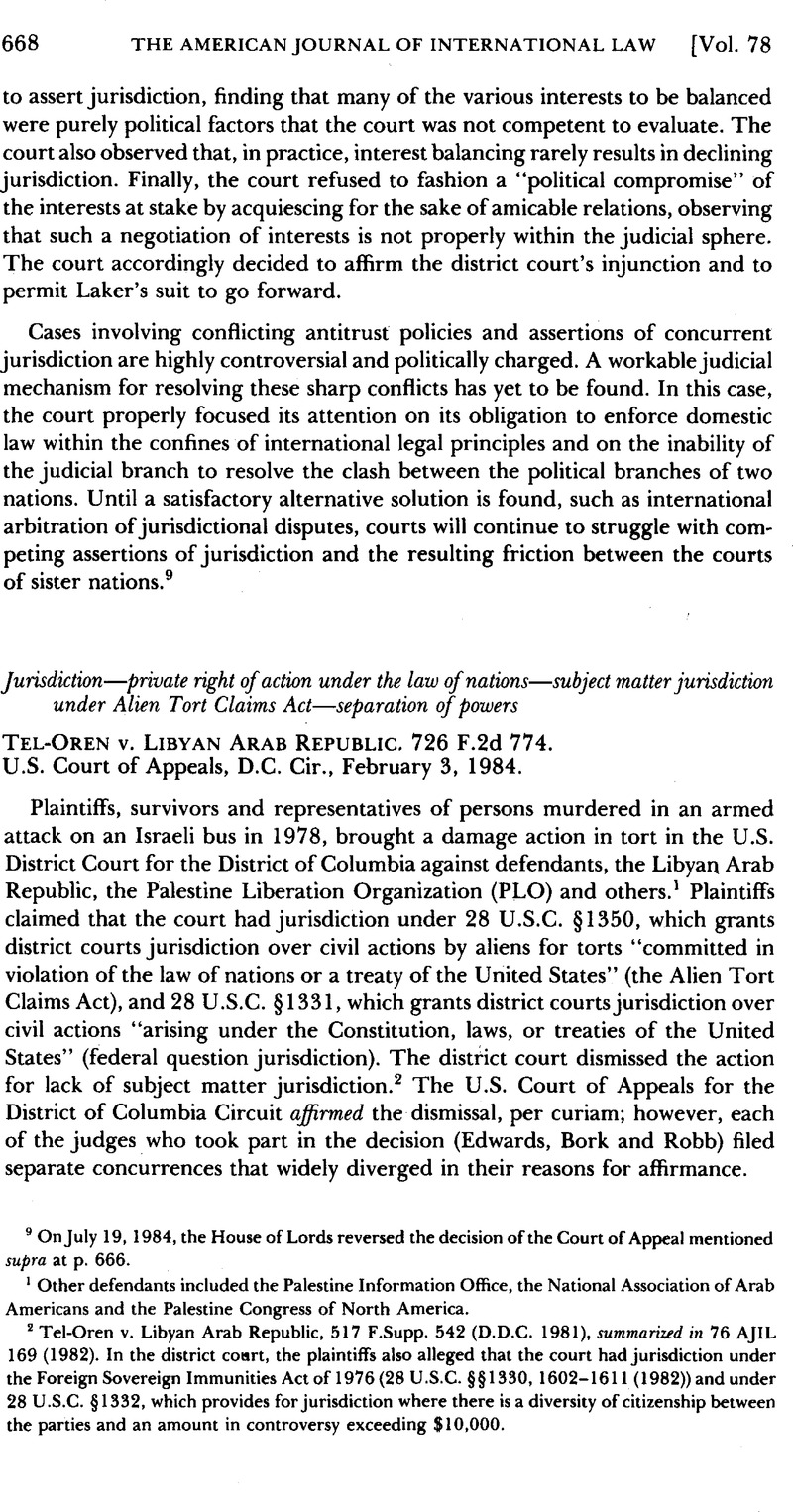Published online by Cambridge University Press: 23 March 2017

1 Other defendants included the Palestine Information Office, the National Association of Arab Americans and the Palestine Congress of North America.
2 Tel-Oren v. Libyan Arab Republic, 517 F. Supp. 542 (D.D.C. 1981), summarized in 76 AJIL 169 (1982). In the district court, the plaintiffs also alleged that the court had jurisdiction under the Foreign Sovereign Immunities Act of 1976 (28 U.S.C. §§1330, 1602-1611 (1982)) and under 28 U.S.C. §1332, which provides for jurisdiction where there is a diversity of citizenship between the parties and an amount in controversy exceeding $10,000.
3 630 F.2d 876 (2d. Cir. 1980), summarized in 75 AJIL 149 (1981). In Filartiga the U.S. Court of Appeals for the Second Circuit interpreted section 1350 as conferring federal subject matter jurisdiction over a private tort action by a Paraguayan national against a Paraguayan police official for acts of torture perpetrated in that country.
4 726 F.2d 774, concurring opinion of Judge Bork, at 801.
5 Id. at 799.
6 No other court discussing the Alien Tort Claims Act has mentioned this requirement. In Dreyfus v. Von Finck, 534 F.2d 24, 28 (2d Cir.), cert, denied, 429 U.S. 835 (1976), the Second Circuit stated that “[w]hile [section 1350 does] not create a cause of action for a plaintiff seeking recovery under a treaty, [it does] give the District Court power to determine whether, in a well-pleaded complaint, a cause of action exists.”
7 “Courts ought not to serve as debating clubs for professors willing to argue over what is or what is not an accepted violation of the law of nations.” 726 F.2d, opinion of Judge Robb, at 827.
8 United States v. Smith, 18 U.S. (5 Wheat.) 153, 160 (1820); The Paquete Habana, 175 U.S. 677, 700 (1900).
9 59 Stat. 1055, 1060 (1945), TS No. 993. Similarly, several international judicial and arbitral decisions have suggested that the writings and opinions of international legal scholars can be used in determining the scope and substance of international law. See, e.g., Fisheries case (UK v. Nor.), 1951 ICJ Rep. 116, 149 (Judgment of Dec. 18) (concurring opinion of J. Alvarez).